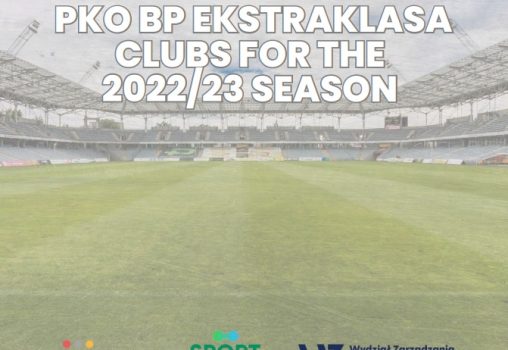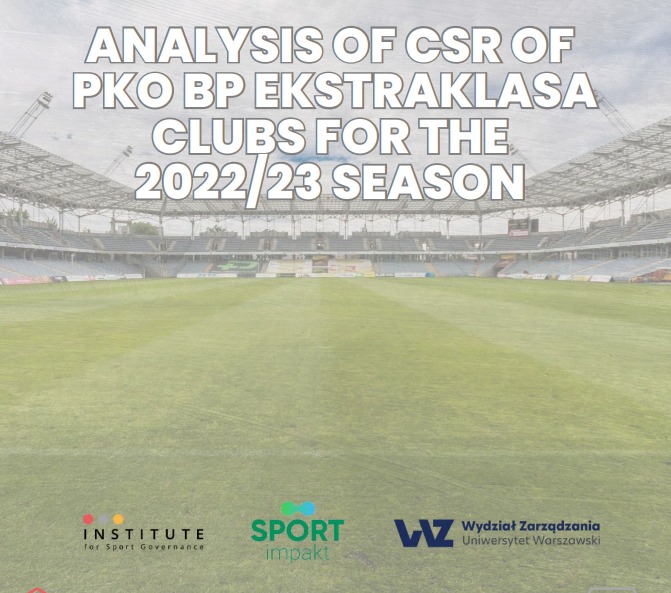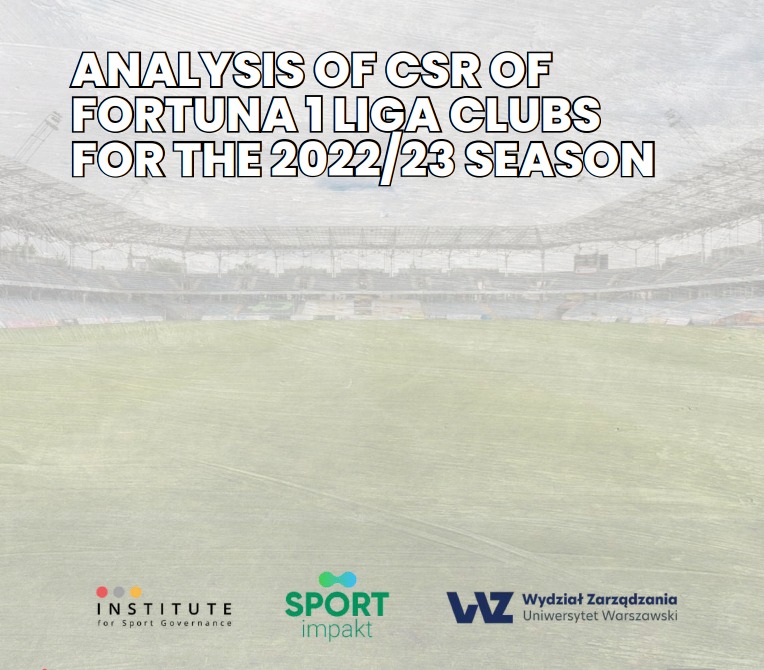Last week, for the first time, we published reports on the CSR of clubs in the top two men’s football leagues in Poland in English.
The reports constitute an analysis of about 130 nonbinary indicators describing 26 manifestations of societal responsibility within the three dimensions: society, environment and governance. The main goal of the reports is to provide information on the current state of CSR / ESG in Polish sports clubs and by doing so lobby for a more responsible approach to management.
The two main characteristics which make the project unique are:
- It is longitudinal – the report on PKO BP Ekstraklasa presents data gathered throughout the six following football seasons. The methodology has not changed throughout the years, although we have added some indicators ensuring that data is gathered on the more recent manifestations of responsibility.
- We involve clubs’ representatives’ input in the data gathering process (yet do not rely on it). While the initial analysis is based on the data published by the clubs, we reach out to relevant persons inside the clubs so he/she can reply to initial analysis and organise follow-up interviews. Oftentimes professional sports leagues support us with contacting clubs, and recently, getting club representatives’ input in the study is becoming easier.
External demands on Polish Ekstraklasa clubs CSR
In Poland, the increasing pressure on the CSR of professional football clubs by UEFA led to defining national football regulations and strategy on CSR and sustainable development. To comply with the licensing process requirements of Polish Football Association since 2023/2024 football clubs in Ekstraklasa are required among others:
- to employ a coordinator of social responsibility, who will be responsible for policies in this area.
- To implement the CSR strategy (similar to the UEFA requirement) that constitutes policies against racism, equality, and integration, protecting the environment, etc.
The CSRD directive, on the other hand, puts requirements on non-financial reporting, which, while not yet directly impacting football clubs in Poland, will influence their sponsors and their supply chains. At the same time, internal workings on sport sponsorship rules for state-owned companies are taking place in the Ministry of State Assets which soon might come to fruition. These companies are traditionally highly involved in professional sports leagues in Poland. All these regulations might be an underlying mechanism to boost social responsibility in clubs.
Between organisational change and status quo
However, according to the results of our studies, clubs’ compliance with the Polish Football Association licencing requirements is at this point very low. Clubs are reluctant to give more meaning to responsibility, especially with pressing financial requirements around the corner. With little support from the Polish Football Association and lack of experience clubs will have trouble marshalling their resources to meet the requirements. Left to themselves, most clubs might myopically eschew discussion on social responsibility.
The full reports can be viewed and downloaded by clicking on the images below:


